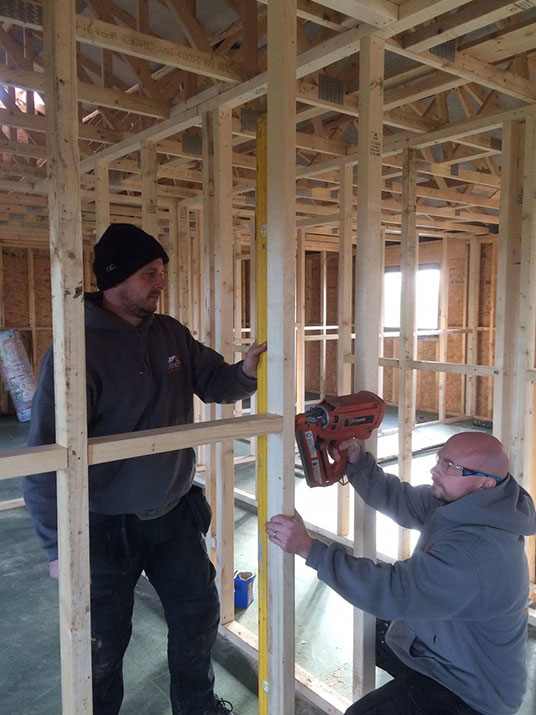Ryan Abell, owner of Abell Building Services, describes when it can be more advantageous to use a small house builder for custom house projects.
House building seems to continually be at the top of the agenda for the Government, but it is also a very popular way to invest money into something that is personal to you, or which will bring investors the greatest benefit.
There are so many modern materials and techniques available when building custom houses today – the advancements have gone past solar panels and underfloor heating to now include cross-laminated timber and insulated windows. So, when building a custom build house, any investor would want to be certain that they’re working with a builder who is aware of the latest techniques and is capable of recommending the best way to use them.
The best builder for a job always depends on the quality of the work the builder provides and their level of skill. However, there are two situations where I believe that a small house builder may be the best option when it comes to building a single custom home.
The first of these is where the owner or property developer is relatively skilled themselves. They might not want a whole team of people to come in and help them and they may have sourced willing and able volunteers, but will still need some expertise to direct and project manage the build.
The benefits of using a small builder here is that small building companies have the flexibility to help where help is needed; to provide guidance and to upskill the other people working on the project, where time is allowed. On the same note, there is the opportunity to bring in extra workers that the builder has worked with before if the project isn’t progressing as quickly as anticipated, due to the lack of skilled workers. This can help a project to get back on track quickly, so that time and money is not wasted.
The other instance that I come across on a regular basis is where there are several mini-projects within the build itself. This could be phase one which needs to be completed by a certain date and then phase two that can only be started once there is budget available (perhaps depending on the sale of another property development). Working with the same builder on both stages can be preferential because they will have an existing understanding of how the owner wants to work and they will have had an opportunity to build up a working relationship, which enables a job to be completed more efficiently.
In both instances, it is important to bear in mind that allowing a builder to have input into the build will always help. All too often have I been called in to repair something that another builder has done simply because they were following the orders of someone who knew what they wanted, but didn’t know the best way of doing it.
Not all building firms specialise in the same things – some will naturally prioritise larger jobs and may not have the capacity to spend time on project managing, advising or demonstrating techniques to property developers or DIY builders. Smaller building companies will usually be able to factor this in more easily. Chances are, the builder taking the instructions for the job will at least be part of the team carrying out the job so they’ll be able to hit the ground running with the work and know what to expect.
About the author
Ryan Abell is the owner of a successful building services company https://www.abellbuildingservices.co.uk/ , employing four other people, including an apprentice. Originally a carpenter, Ryan gained experience in transforming customers’ houses into their ideal homes which inspired him to complete further qualifications that have enabled him to manage entire building projects from start to finish.


